Who is Anthony Albanese? A guide to the Prime Minister and his Labor team at this election
Anthony Albanese’s quest to become the first Labor leader to be re-elected this century will see him battle to reverse his falling personal popularity.
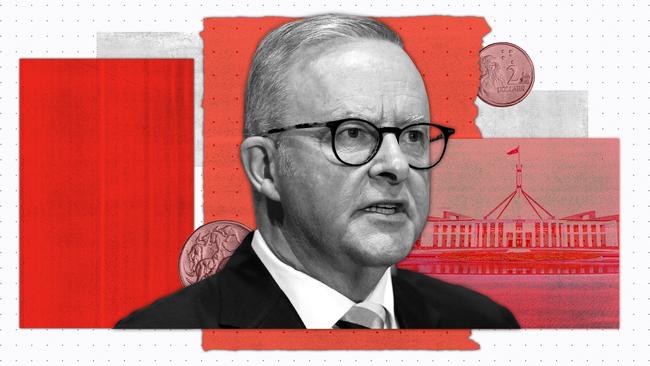
Anthony Albanese’s quest to become the first Labor leader to be re-elected this century will see him battle to reverse falling personal popularity, convince voters of his economic prowess and fend off attacks over his handling of domestic anti-Semitism.
Hammering home his “Building Australia’s Future” election slogan, the Prime Minister will try to persuade voters his government has lowered inflation, kept unemployment at a record low, given every Australian a tax cut and delivered pay rises to child and aged-care workers.
His re-election pitch will be focused on delivering cost-of-living relief to working Australians, including more affordable childcare, clean energy jobs and slashing existing student debts by 20 per cent.
Who is Anthony Albanese?
For the politician of almost 30 years, his childhood in public housing raised by a single mother is as much a part of his public persona as his cavoodle Toto.
He is the first prime minister to propose marriage in The Lodge, after he popped the question to fiancee Jodie Haydon with a specially designed ring on Valentine’s Day.
Mr Albanese separated from his wife and former NSW Labor deputy premier Carmel Tebbutt in 2019.
Since assuming the Labor Party leadership after Bill Shorten’s shock loss in the 2019 election, Mr Albanese sought to position himself as a down-to-earth, empathetic and transparent alternative to a succession of Liberal leaders.
He made appearances at music festivals, wore band T-shirts and even stepped behind the DJ decks.
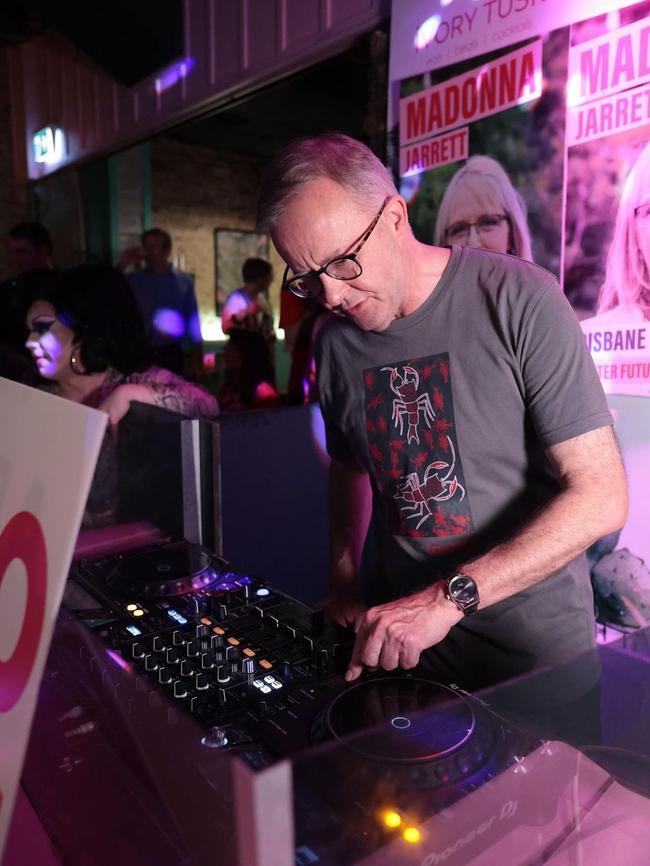
Since the collapse in support for an Indigenous voice to parliament in October 2023, “DJ Albo” has moved away from socially progressive causes.
His policy ambitions have also been pared back, with the second half of his tenure being defined by his broken promise on stage three tax cuts, efforts to sell his Future Made in Australia policy to industry leaders, and an escalating war with big business over IR reforms.
And his purchase of a $4.3m beach house at Copacabana on NSW’s central coast has raised questions about whether the Prime Minister is already preparing for a life after politics.
Top members of Anthony Albanese’s team for the 2025 election
Here are the top members of Mr Albanese’s team going into the 2025 federal election:
Jim Chalmers, Treasurer

A knight, a pilot and the hunter of a dangerous thief. Jim Chalmers has framed himself as many things in his almost three years as Treasurer, repeatedly asserting his mission to slay the inflation dragon, achieve a soft landing for the economy and fight “public enemy No.1”, runaway inflation.
The Treasurer assumed control of the nation’s finances when Labor was propelled to power in May 2022, at a time when inflation was soaring, unemployment was low and the Reserve Bank was about to begin a punishing cycle of rate hikes.
The pandemic, Ukraine war and Middle East conflict have pummelled the global economy and inflamed a domestic cost-of-living crisis, but soaring iron ore prices and booming migration have helped Dr Chalmers deliver two surpluses in office.
Dr Chalmers, who holds a PhD in political science based on Paul Keating, has become renowned for his slogans, repeatedly vowing to get the budget into “better nick” and acknowledging Australians are “under the pump”.
The Queenslander, who represents the seat of Rankin in Brisbane’s south, deployed an offensive of $300 energy subsidies last year in a bid to fight inflation and secure an RBA rate cut by the election.
Though figures released in January revealed that headline inflation had fallen to 3.2 per cent and headline inflation to 2.4 per cent, only time will tell whether the gamble will pay off.
Penny Wong, Foreign Affairs
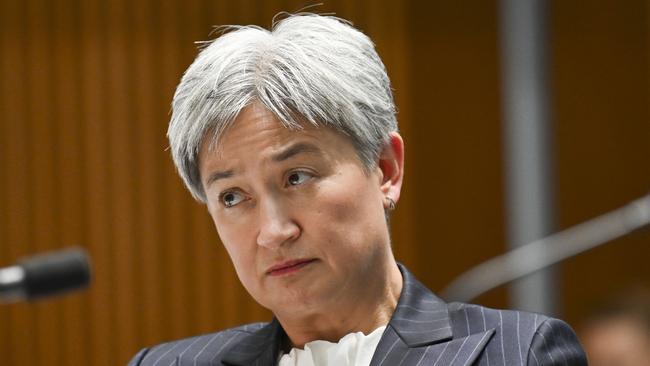
The outbreak of the Israel-Hamas war plunged the Middle East and Foreign Minister Penny Wong into turmoil.
The first Asian-Australian and openly gay MP to serve as foreign minister with wide-reaching public appeal, Senator Wong embarked on a diplomatic blitz of Pacific nations after Labor’s 2022 election win.
Long considered the star of the Labor Left faction, Senator Wong racked up a series of diplomatic wins early in her term, thawing the Australia-China relationship and securing the release of Australians detained overseas, including journalist Cheng Lei and economist Sean Turnell.
But the steely South Australian senator has faced attacks from both sides on her response to Israel’s invasion of Gaza.
Her repeated criticism of Israel’s bombing offensive, calls for a ceasefire before hostages had been released and refusal to rule out that Australia would act on an ICC arrest warrant for Israeli Prime Minister Benjamin Netanyahu has attracted criticism from the Coalition and Jewish leaders.
Persistently asserting her support for a two-state solution, Senator Wong decided to split with the US and vote with 156 other nations in support of a Palestinian state in a UN resolution in December.
Senator Wong has also been criticised by pro-Palestine supporters for failing to take more decisive action to condemn Israel.
The conflict has also strained the nation’s social cohesion and led to a rise in anti-Semitic graffiti and arson attacks, sparking accusations from Jewish groups and the Coalition that Australia’s position on the conflict was fuelling hate crimes.
Her biggest test will be navigating US President Donald Trump, after he pledged to upset the world order and has started to impose significant trade tariffs.
Tony Burke, Home Affairs and Immigration
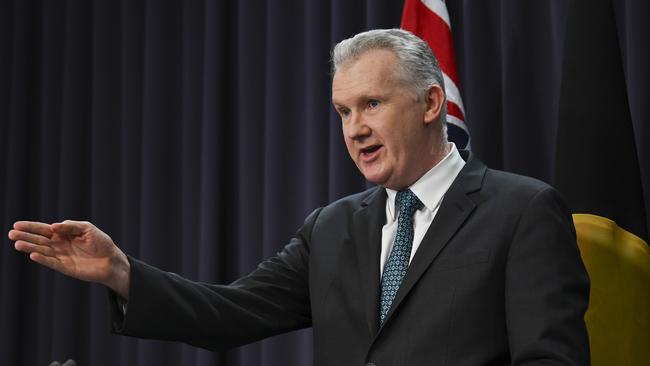
Home Affairs and Immigration Minister Tony Burke has been handed the unenviable task of overseeing Australia’s borders, national security apparatuses and fending off a tidal wave of migration court challenges.
The holder of the immigration portfolio is said to be the most sued person in the country, with Mr Burke taking over the job taken away from Andrew Giles in a July reshuffle.
After he took on the nation’s powerful mining and business lobbies to secure the passage of two tranches of industrial relations reforms as workplace and employment minister, Mr Burke has firmed his reputation as a strong performer in the Albanese government.
A member of the Labor Right faction who has been in parliament for 20 years, Mr Burke has been seen as a potential Labor leader and a threat to Dr Chalmers and Tanya Plibersek’s rumoured leadership ambitions.
But his multicultural, western Sydney seat of Watson has been targeted by the Muslim Vote movement, which has criticised Labor’s response to the Middle East conflict.
The leader of the House of Representatives has been Mr Albanese’s right-hand man in wrangling the crossbench, and will likely play a pivotal role in securing the support of independents and the teals if Labor is handed a minority government.
Chris Bowen, Climate Change and Energy
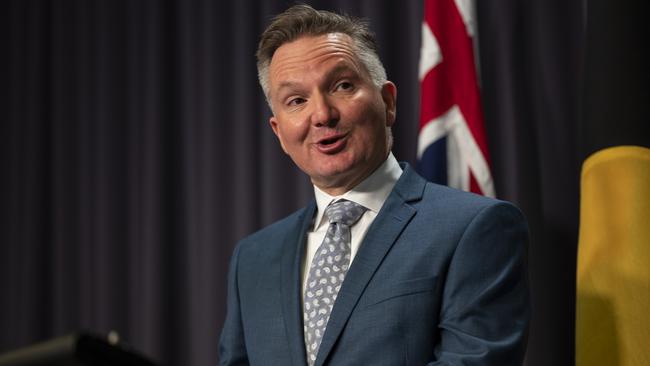
Energy and Climate Minister Chris Bowen is becoming as well known for his zingers as his broken promise to reduce energy bills by $275 by this year.
The senior Labor Right figure tasked with overseeing the transition to renewable energy has been on the front foot of the ALP’s attack on Peter Dutton’s nuclear policy.
Mr Bowen has repeatedly ridiculed the Opposition Leader’s plan to build government-owned nuclear reactors on seven sites, dismissing the proposal as a “fantasy” based on “joke” modelling. He once quipped the plan was “crumbling like a Sao in a blender”.
In the lead-up to the 2022 election, Mr Bowen pledged to slash energy bills by $275. More than two years later when asked about the failed election promise, he said the government was “sticking with that ambition” to lower energy bills, and blamed global factors.
Labor’s target to reach 82 per cent renewables by 2030 has been attacked by food producers and business leaders, putting Mr Bowen on the defensive over his green transition.
Mr Bowen’s mission to fight global warming and set an ambitious and achievable 2035 emissions target will be complicated by the election of Donald Trump in the US after the latter pulled out of the Paris climate agreement.
Mr Bowen also led Labor’s push to promote the use of electric vehicles through its new vehicle emissions standards and has faced strong opposition to his rollout of offshore wind farms in regional communities.
Tanya Plibersek, Environment Minister
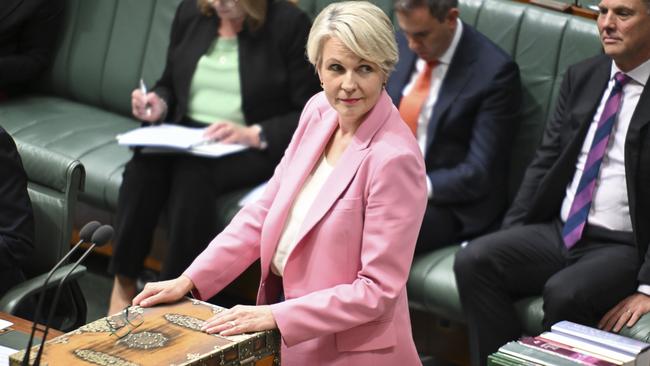
The longest-serving woman in the House of Representatives, Tanya Plibersek was surprised to be handed the Environment and Water portfolios after Labor shot to power at the last election.
The member for Sydney, who has long been viewed as a potential Labor leader, vowed to fix Australia’s broken environmental protection laws when Mr Albanese handed her the role in an upset after nine years of Coalition government.
The move to appoint an inner-city MP fending off a Greens incursion to the problematic portfolios, after six years as opposition education spokeswoman, was widely seen as another slight the Prime Minister had dished to his political rival.
The star of the Labor Left faction, who has spent about half of her life in federal parliament, enjoys wide public appeal and has signalled her leadership ambitions in the past.
Mr Albanese’s supporters blamed Ms Plibersek’s decision to stand for deputy for his loss in the 2013 leadership contest against Bill Shorten. Ms Plibersek did not run against Mr Albanese in 2019 but later said “if I had run, I would have won”.
In the environment portfolio, Ms Plibersek has been battered by political headwinds.
She has been criticised by environmentalists for approving 10 new coal mines in that time, came under fire for blocking a gold mine near Blayney in NSW over an Indigenous myth about a bee, and angered Tasmania’s salmon industry as she weighed protection of an endangered fish.
Ms Plibersek endured another political blow when Mr Albanese torpedoed a deal she was closing in on with the Greens to pass legislation introducing a federal environmental protection agency.


To join the conversation, please log in. Don't have an account? Register
Join the conversation, you are commenting as Logout